My Core 2 class, Misrepresentation of Women in Science and Society, is a course that never fails to enlighten me about the downfalls of our patriarchal society and how it maintains certain power structures through the oppression of women, minorities, and LGBTQ+ identities. This week, we covered a topic that might not seem super dramatic at first, but branches out to be responsible for a myriad of issues: virginity and the promotion of abstinence. We watched the documentary "The Purity Myth," which is based on the book of the same name by Jessica Valenti, and although I already knew much of the information and the ideas presented, I was still struck by the reality of it.
“What’s the difference between venerating women for being "f***able" and putting them on a purity pedestal? In both cases, women’s worth is contingent upon their ability to please men and to shape their sexual identities around what men want.” This quote from the book highlights the issue with the concepts of virginity and purity: women face a toxic double standard in which they must be attractive and sexually appealing, but they also must be virginal and pure because it is deemed dirty and immoral if a woman is sexual on her own terms without the sole purpose of catering to a man. A woman’s self-perception becomes so dependent on her body, and her morality is determined not by her kindness or compassion, but by her virginity. All of her achievements and accomplishments suddenly become null and void in the face of her sexual experience, or lack of. The glorification of virginity places a woman’s value and moral compass between her legs rather than in her ethical ideals.
Placing virginity onto a pedestal perpetuates the policing of women’s bodies and sexuality so that they will be infantilized and seen as inferior. Their virginity is not theirs, but rather something for a man to take. For women, it is promoted as an act of submission to further gender roles and current power structures. This emphasis on equating female value with sexual status leads to only a myriad of issues such as the inadequate abstinence-based sexual education, rape culture and slut-shaming, limitation of reproductive freedom, sexual objectification, purity balls and many others. I will touch upon as many topics as I can, but if you wish to learn about this subject in greater detail, I highly recommend reading "The Purity Myth" or watching the documentary.
One of the biggest problems with the conservative glorification of virginity is that it has led to the creation of abstinence-based sexual education programs, which often teach that the only way one can avoid pregnancy and STI’s is to abstain from sexual activity. Common lessons include examples of women turning into chewed up gum or bare flower stems when having sex before marriage. Abstinence curricula often spreads false and misleading information such as that a 43-day-old fetus is considered a thinking person, HIV can be spread through sweat and tears, condoms fail 31 percent of the time in heterosexual intercourse, and ten percent of women who received abortions become sterile. Of course, the curricula does not contain any instruction or aid for LGBTQ+ or sexually active students, except for the rare case when the teacher is willing to break rules to teach even simple things like how to put on a condom. One student—who wishes to stay anonymous—described her experience with abstinence-based sex education and her luck of getting a teacher willing to teach actual facts:“[Abstinence] was pushed really hard but I was lucky to have a teacher who knew that it wasn’t really an option being used by people at our school. He talked about how many people thought the concept of virginity was really important for religious and other reasons so that they were doing anal instead of vaginal sex and how he was concerned because for people who don’t know what they are doing there is a high risk of infection, tearing, and all that. More than anything he pushed that there were loopholes technically based on your perception of virginity but you have to be safe and know what you are doing."
This leads me to another point about the misconstrued view of virginity. The whole definition of it is vague, based on inaccurate facts about anatomy, and ignored non-cisgender heteronormative sexual identities. If virginity means that you have not had sex, what actually counts as sex? Is it just vaginal penetration with a penis, or does the definition include other acts as well? This ambiguity leads to people believing that anal and oral sex do not count as loss of virginity. These misconceptions can be very harmful though if the participants have not received proper sex education on the subjects. A favorite satirical song of mine, “Fuck Me in the Ass Cause I Love Jesus,” illustrates this belief quite vividly.
Moreover, many myths about the “first time” spread and can bring fear to anyone with a vagina. The main misconceptions are that the first time is very painful and that the hymen “breaks.” First of all, if your partner knows what they are doing and has properly aroused you, it should not be unbelievably painful. There might be some discomfort in the very beginning at most. Next, the hymen is a doughnut-shaped membrane in the vagina, but it does not cover any openings. Hymen tissue is naturally worn away by adolescence, and some people aren’t even born with hymens. Plus, it’s vaginal tissue, not hymen tissue, that “tears” and bleeds; this type of tearing can occur just from using tampons or riding a bike. Plus, if there is tearing, it means there isn’t proper lubrication and your partner is doing it wrong. Therefore, on a biological level, you can’t really “prove” virginity, especially not with the hymen.
If the loss of virginity is traditionally defined by penetrative intercourse between a penis and a vagina, where does that leave everyone who isn’t cisgender and straight? If two men have anal sex, does that make them virgins? What about lesbians? If someone has intercourse with a transgender person who has the same genitalia but a different gender identity, does that still count in the virginity concept? These types of questions are often ignored because virginity is a primarily cisgender and heterosexual concept because it is used to promote a society that dismisses LGBTQ+ identities. Just like the gender binary, virginity should be seen as a myth because it only applies to a cis-heteronormative society.
The previously interviewed student had something to say about this:
“I didn’t really question my definition of virginity in high school at all. I guess it wasn’t until my first year at Scripps that I really began questioning it. I came out [as bisexual] in my senior year of high school, but I still thought losing your virginity was like, penetration between a [cisgender] man and a [cisgender] woman. I hadn’t really considered what it was for girls until I had my first same-sex partner who was a woman… It’s kind of problematic to have a version of virginity that’s only between myself and a man. If there’s a version of virginity for that, then there should be one for me and another woman as well. But then again, the concept of virginity is really problematic in itself, so I’m still struggling to define it myself so I don’t think there is a way to define it that isn’t problematic. For me, any kind of sex—oral, anal—is sex; if you do one thing it still counts… I feel like if there isn’t a version of virginity between women then it kind of invalidates queer relationships… eliminate the concept of virginity because it’s kind of bull."
The popular perception of the ideal and stereotypical virgin is problematic because it usually refers to a thin, conventionally attractive, white, and young woman who has a bland personality, is not from a low-income family, and participates in domestic extracurricular activities like babysitting. Those who do not meet these standards of virginal purity and morality—like women of color, poor women, and fat women—are seen as inherently dirtier and inferior. Moreover, when women are raped and do not meet these virginal requirements and ideals, they are shamed and the sexual violence they experienced is invalidated. If a cute white schoolgirl who is also a virgin is raped, she is pitied and empathized with because her “purity and innocence” was snatched from her. If a woman of color or a sex worker is raped, she isn’t taken seriously and is instead subjected to slut-shaming and victim blaming.
The concepts of virginity, and purity in general, lead to a culture of slut-shaming and ridiculous double standards. A woman is expected to be sexually appealing to men, but she must also be pure and modest. If she has control over her own body and sexuality, she is shamed and scorned. A woman is either a slut or not a slut. The promotion of these ideas causes women who are brought up with an emphasis on abstinence by family, religion, etc. to also participate in rampant slut-shaming and to feel immense regret when they cannot fulfill the promise to abstain from sex until marriage. Another student, who also wishes to remain anonymous, discussed her experiences with abstinence, religion, and virginity:
“I grew up Christian and came to college knowing I didn’t want to have sex before marriage. It was ingrained in my head to do so and that I would be valued more if I didn’t have sex and I never thought that I should have sex…It wasn’t any influence from my parents, just primarily from my religion. I had a falling out with my religion in my sophomore year and just got farther away and wondered why I restricted myself from not having this pleasure. I also was waiting for the right guy so that prevented me from having sex in general. But after I had that falling out I thought I had been confused before, and also I was a bit pressured into it socially through our hookup culture, so I ended up having sex my sophomore year. I had a few encounters, maybe five, after that but I didn’t go crazy since I still knew that it was seen as bad for a woman to have many partners and I didn’t want to degrade myself. I know it’s not bad now, but at that time I thought ‘oh my gosh that’s awful, you’re like a whore having so much sex with everyone and your value as a woman goes down.’ I didn’t want to be known around campus as someone who just sleeps with everyone so I just wanted to keep to myself and wait for the right person."
She also described her experience and feelings after having sex for the first time:
“I felt awful because it was with one of my best friends. I regretted it because our friendship turned into something that was more than just friendship and I didn’t want that to happen. However, I felt liberated because it wasn’t holding me back anymore. I still had a small feeling of guilt but sophomore year I overall felt liberated. Now I’m leaning more towards the idea that I will only have [sex] with a guy I truly like.”
Interviewing two people with different backgrounds and perspectives about sex and abstinence was enlightening, but I found that both very much illustrated the problems with the glorification of virginity in that it spreads misinformation about sex, invalidates queer relationships, and promotes slut-shaming. Overall, the idea of equating a person’s sexual experience with her worth and value as a person is a toxic notion used by conservatives to ultimately control women’s bodies and reproductive freedoms. Virginity is a myth and a social construct used to strengthen patriarchal power structures and gender roles.


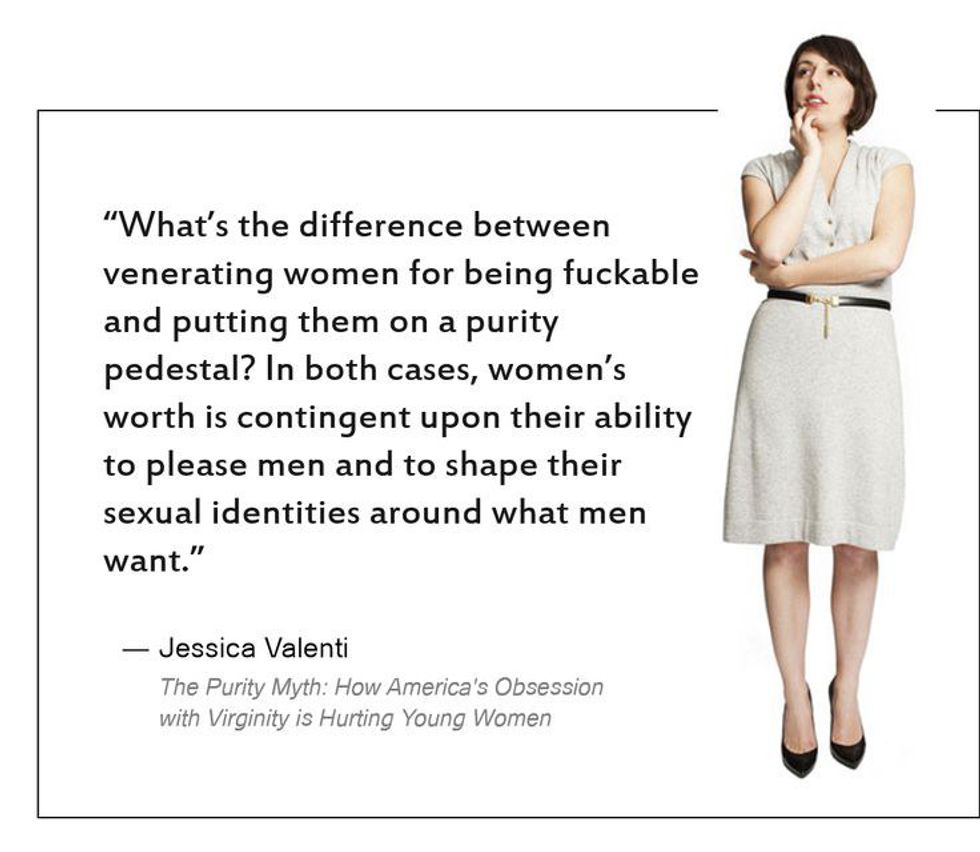
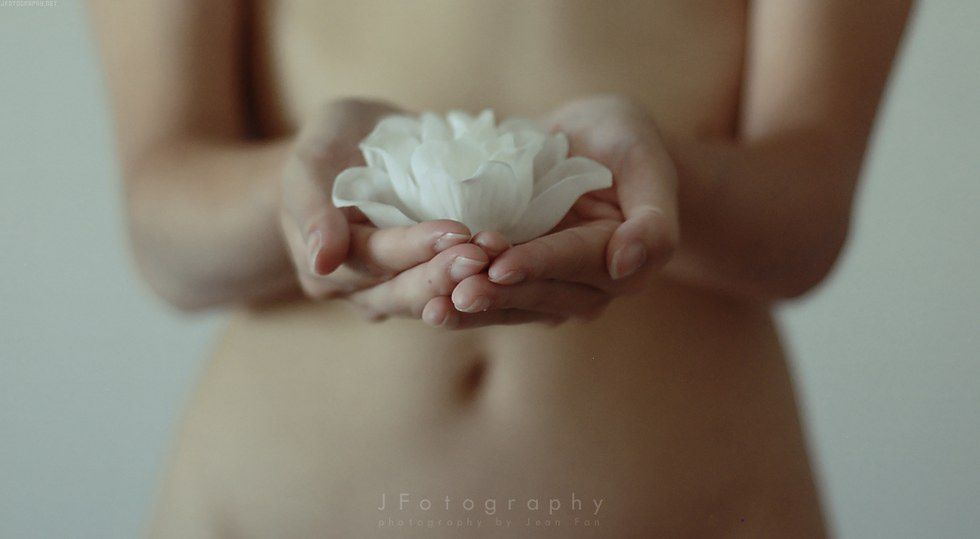
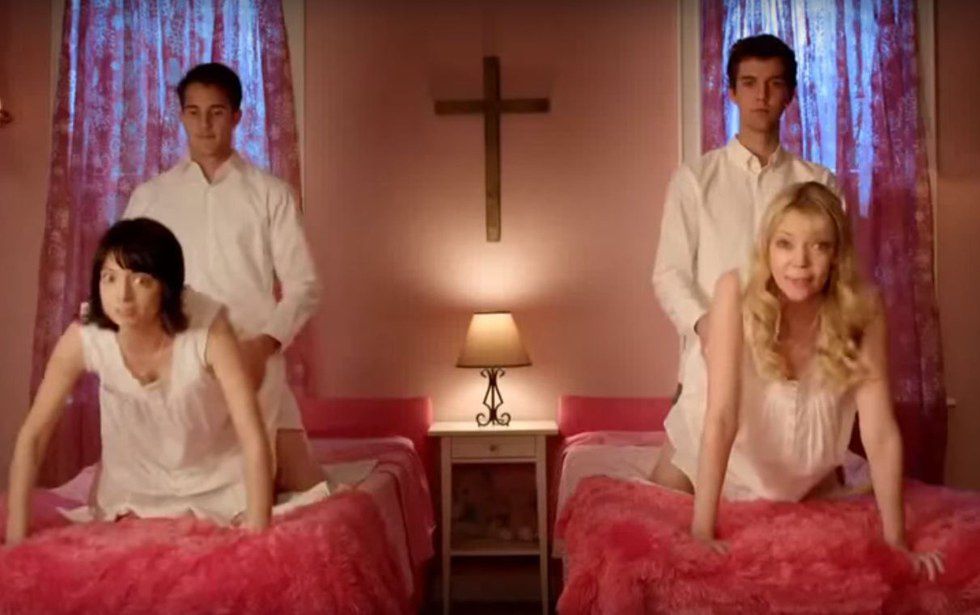
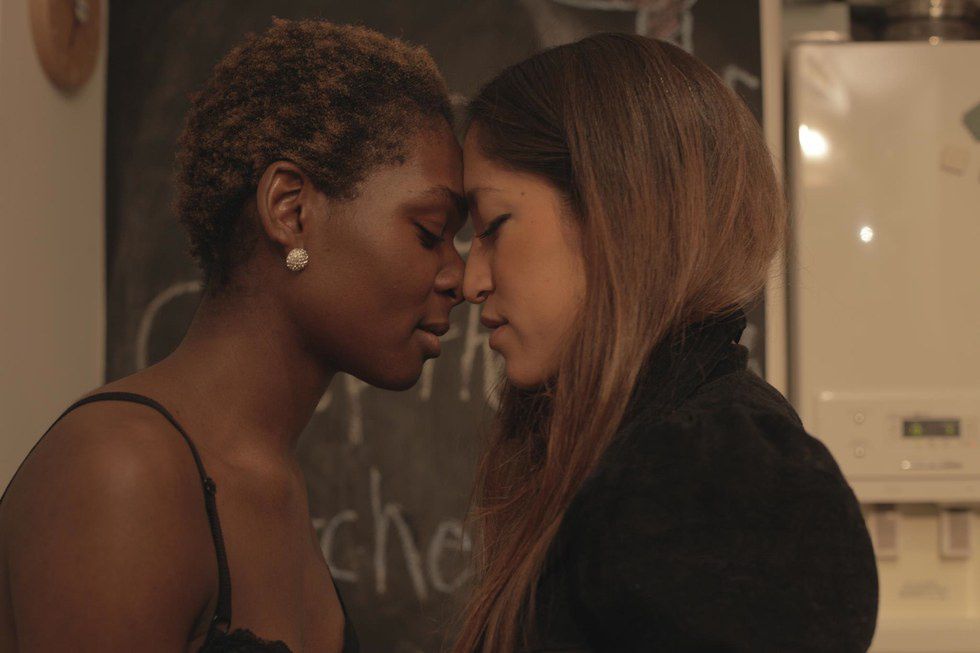
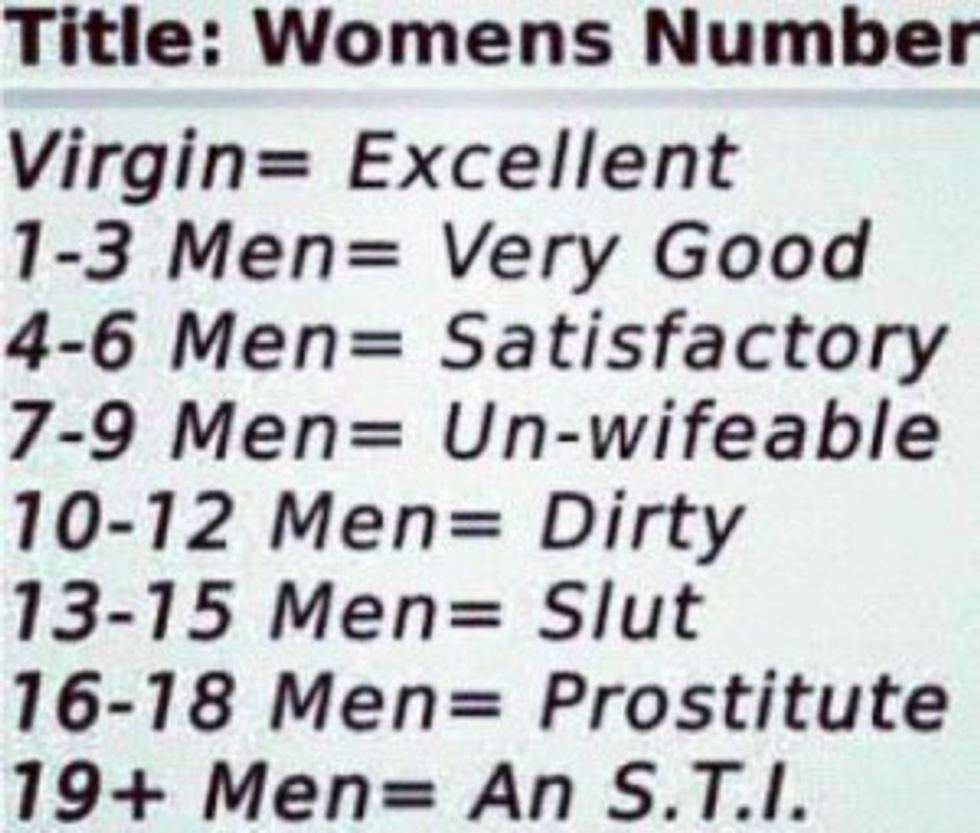
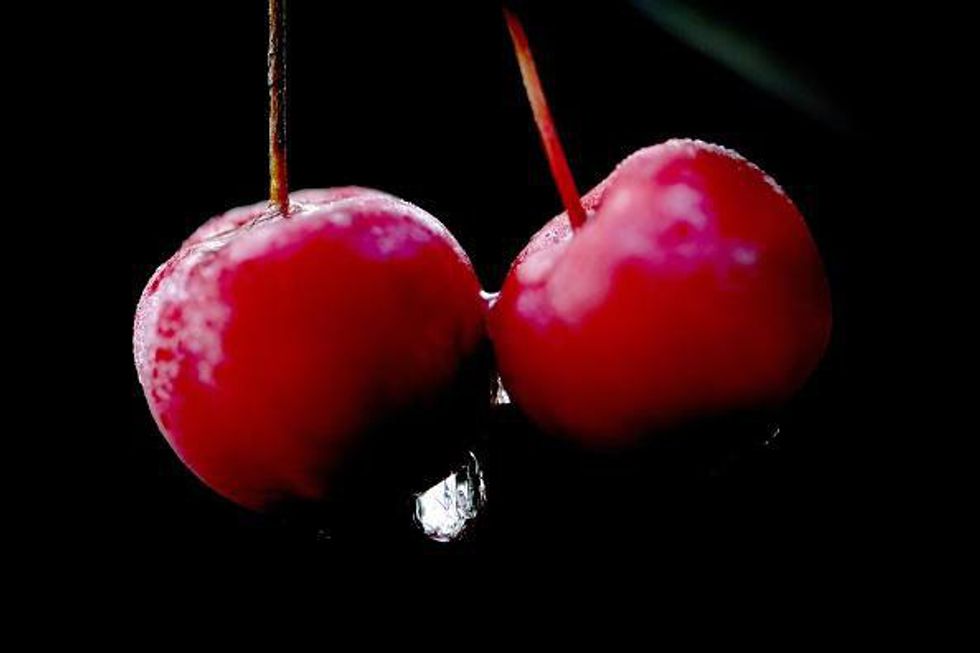

 women in street dancing
Photo by
women in street dancing
Photo by  man and woman standing in front of louver door
Photo by
man and woman standing in front of louver door
Photo by  man in black t-shirt holding coca cola bottle
Photo by
man in black t-shirt holding coca cola bottle
Photo by  red and white coca cola signage
Photo by
red and white coca cola signage
Photo by  man holding luggage photo
Photo by
man holding luggage photo
Photo by  topless boy in blue denim jeans riding red bicycle during daytime
Photo by
topless boy in blue denim jeans riding red bicycle during daytime
Photo by  trust spelled with wooden letter blocks on a table
Photo by
trust spelled with wooden letter blocks on a table
Photo by  Everyone is Welcome signage
Photo by
Everyone is Welcome signage
Photo by  man with cap and background with red and pink wall l
Photo by
man with cap and background with red and pink wall l
Photo by  difficult roads lead to beautiful destinations desk decor
Photo by
difficult roads lead to beautiful destinations desk decor
Photo by  photography of woman pointing her finger near an man
Photo by
photography of woman pointing her finger near an man
Photo by  closeup photography of woman smiling
Photo by
closeup photography of woman smiling
Photo by  a man doing a trick on a skateboard
Photo by
a man doing a trick on a skateboard
Photo by  two men
two men  running man on bridge
Photo by
running man on bridge
Photo by  orange white and black bag
Photo by
orange white and black bag
Photo by  girl sitting on gray rocks
Photo by
girl sitting on gray rocks
Photo by  assorted-color painted wall with painting materials
Photo by
assorted-color painted wall with painting materials
Photo by  three women sitting on brown wooden bench
Photo by
three women sitting on brown wooden bench
Photo by 
 Photo by
Photo by  Photo by
Photo by  Photo by
Photo by  Photo by
Photo by 


 people sitting on chair in front of computer
people sitting on chair in front of computer



 all stars lol GIF by Lifetime
all stars lol GIF by Lifetime two women talking while looking at laptop computerPhoto by
two women talking while looking at laptop computerPhoto by  shallow focus photography of two boys doing wacky facesPhoto by
shallow focus photography of two boys doing wacky facesPhoto by  happy birthday balloons with happy birthday textPhoto by
happy birthday balloons with happy birthday textPhoto by  itty-bitty living space." | The Genie shows Aladdin how… | Flickr
itty-bitty living space." | The Genie shows Aladdin how… | Flickr shallow focus photography of dog and catPhoto by
shallow focus photography of dog and catPhoto by  yellow Volkswagen van on roadPhoto by
yellow Volkswagen van on roadPhoto by  orange i have a crush on you neon light signagePhoto by
orange i have a crush on you neon light signagePhoto by  5 Tattoos Artist That Will Make You Want A Tattoo
5 Tattoos Artist That Will Make You Want A Tattoo woman biting pencil while sitting on chair in front of computer during daytimePhoto by
woman biting pencil while sitting on chair in front of computer during daytimePhoto by  a scrabbled wooden block spelling the word prizePhoto by
a scrabbled wooden block spelling the word prizePhoto by 
 StableDiffusion
StableDiffusion
 StableDiffusion
StableDiffusion
 StableDiffusion
StableDiffusion









